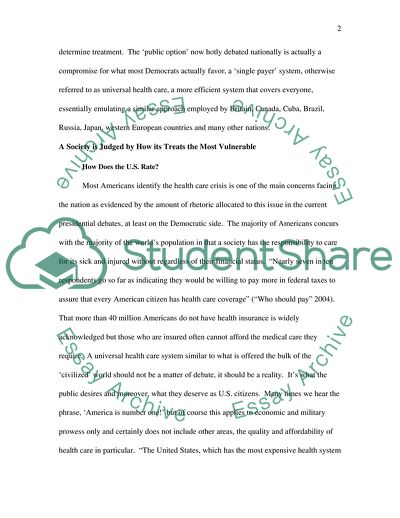Cite this document
(Healthcare in the USA Should Be a Right Not a Privilege Essay, n.d.)
Healthcare in the USA Should Be a Right Not a Privilege Essay. https://studentshare.org/health-sciences-medicine/1730219-the-minimum-wage-or-something-non-historicalbiography-religion-or-abortion
Healthcare in the USA Should Be a Right Not a Privilege Essay. https://studentshare.org/health-sciences-medicine/1730219-the-minimum-wage-or-something-non-historicalbiography-religion-or-abortion
(Healthcare in the USA Should Be a Right Not a Privilege Essay)
Healthcare in the USA Should Be a Right Not a Privilege Essay. https://studentshare.org/health-sciences-medicine/1730219-the-minimum-wage-or-something-non-historicalbiography-religion-or-abortion.
Healthcare in the USA Should Be a Right Not a Privilege Essay. https://studentshare.org/health-sciences-medicine/1730219-the-minimum-wage-or-something-non-historicalbiography-religion-or-abortion.
“Healthcare in the USA Should Be a Right Not a Privilege Essay”. https://studentshare.org/health-sciences-medicine/1730219-the-minimum-wage-or-something-non-historicalbiography-religion-or-abortion.


